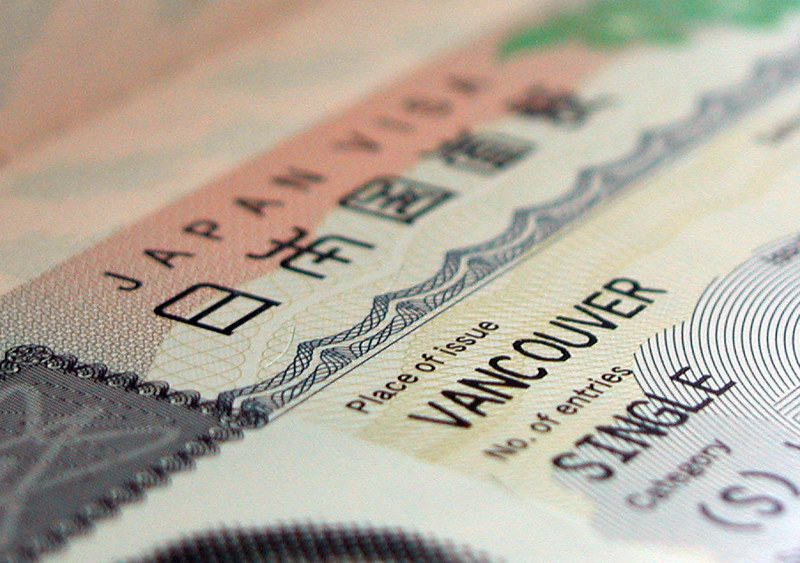
photo by Paul Davidson
Same as other counties that impose strict boarder restrictions due to the spread of the Delta variant, Japan prohibits new entries to the country unless special grounds. Before the COVID-19 pandemic, the number of tourists from overseas kept growing and there was a large demand for foreign workers to engage in service industries such as food service and accommodations. But now, all these positions are wiped off. Consequently, many foreign workers who had been working in Japan ended up losing their jobs.
Visa issues surrounding foreign residents in Japan
As of September 2021, Japan prohibits new entries from overseas to the country. Even those who already have a visa have to wait in their countries. This has resulted in a significant decline of tourists visiting Japan, and many foreign workers of travel and food service businesses and technical intern trainees have lost their jobs. Furthermore, Japan’s economy itself slumped significantly, the entire employment market has shrunken, resulting in the increased unemployment rate of foreign workers. As a result, many former international students are struggling to find jobs. As you know, foreign residents who reside in Japan are required to do activities they registered to retain their visa status. That means, of they lose their jobs, their visa may be revoked unless they find another job. However, many of them currently have problems to go back to their countries for the reasons like the spread of COVID-19 is worse in their countries, or they are not able to return to their countries because of financial problem. To ease this situation, the government allows people who have problem to find a job extend their stay in Japan.
Relaxation of visa requirements
Currently, visa requirements for foreign residents have been changed as follows. After you change your visa to “designated activity” visa in the below table, you may be able to get work permission. However, condition of work permission will be determined according to your current visa.
Work visa holders and former international students
|
Visa |
Before change |
After change |
|
Work visa holder |
|
• You may retain your work visa until whichever arrives first: 6 months or visa expiry date • Then you may change your visa to “designated activity (6 months)” (work permitted) |
|
Former international student looking for a job |
|
• You may change your visa to “designated activity (6 months)” after graduation to find a job. You may stay in Japan more than 1 year. • Work permission 28 hours a week (you need to apply) |
|
Former international student waiting for commencement of job |
|
• You are allowed to stay in Japan more than these period in the left • Work permission 28 hours a week (you need to apply) |
Technical intern trainees
Technical intern training program was established to deliver technologies and knowledge developed in Japan to emerging countries. Technical intern trainees are accepted in many industries such as agriculture, fishery, construction, automobile engineering, machinery, metals, etc. However, many companies have become unable to keep employing trainees due to the COVID-19 pandemic because they have to maintain adequate facilities and benefits to accommodate those trainees. As a result, many technical intern trainees have lost their training opportunities. Before COVID-19, trainees were not allowed to change their jobs, but since last year, they are allowed to change their jobs in the same or different industry only if they have found a new training provider (only those who lost their jobs, or those who unable to return their countries due to the COVID-19 pandemic). One thing you should know is, procedures to change job differs depending on whether you have you new job in the same industry or different industry.
- Same industry: You can continue training by applying for change of supervising organization and training provider
- Different industry: Make a employment contract with a new training provider. Change your visa to “designated activity (max 1 year)”. Pass “skilled labor” test while you work with “designated activity (max 1 year)”.
Stay strong
Since the COVID-19 pandemic started in the end of 2019, there still is no sign of ending. There are so many foreign residents in Japan who are in financial difficulty because they have lost their jobs, or are unable to find a job. Currently, if you are in such a situation, you may apply for “designated activity” visa before your current visa expires and extend your stay in Japan for longer period of time. Also, technical intern trainees who were not allowed to change jobs are now permitted to find new training providers. Furthermore, the Immigration Services Agency of Japan provide employment support services for foreign residents who want to keep working in Japan.
